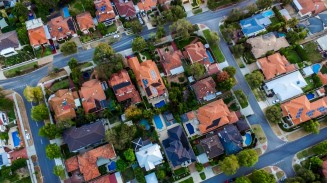Hong Kong authorities started to clear the main pro-democracy protest site near the heart of the financial center on Thursday, marking an end to more than two months of street demonstrations that have choked parts of the Chinese-controlled city.
The mainly peaceful protests to demand free elections have represented one of the most serious challenges to China's authority since the 1989 pro-democracy demonstrations and bloody crackdown in and around Beijing's Tiananmen Square.
Hundreds of police stood by in the Admiralty district next to government buildings and the Central business area as workers in construction hats used wire cutters to remove barricades, erected by protesters, after a court injunction two days ago.
The workers also slowly dismantled barricades made of bamboo scaffolding, watched by large crowds of onlookers and media.
There was little resistance as protesters packed up pillows, blankets and other belongings from inside their tents in some of the world's most expensive real estate and prepared to leave.
"I will for sure miss this place. It has become my home," 20-year-old student Lucy Tang said before the workers moved in.
Despite the clearance, the occupy movement has been a social watershed on the fringes of greater China, with people pushing back against increasing control and standing up to Beijing to preserve democracy and freedoms largely denied on the mainland.
For many, it was a tearful farewell to the site where thousands had gathered in recent weeks. Some said the protests had injected life into the former British colony's democracy movement.
"The movement has been an awakening process for Hong Kong. People who weren't interested in politics before are now and aren't afraid to get arrested, especially the young people," said Labor Party lawmaker Lee Cheuk-yan.
The clearance at Admiralty comes more than two weeks after authorities removed barricades from a protest site in the working-class district of Mong Kok, sparking several nights of running battles between demonstrators and police. A handful of protesters remain in the busy shopping district of Causeway Bay.
The protests drew well over 100,000 at their peak as students vented their anger at Beijing's refusal to budge on electoral reforms and grant greater democracy to the Asian financial center.
"WE'LL BE BACK"
While many democracy activists chose to depart peacefully, the overall mood was one of defiance.
A large yellow banner bearing an umbrella and the words "We'll be back" was draped in the center of the highway where protesters had camped out, with similar messages scrawled on roads and posted on tents.
Next to the Chinese People's Liberation Army base in the heart of the city, a huge orange banner erected across barricades read: "It's just the beginning."
Hong Kong Federation of Students leader Alex Chow said: "You might have the clearance today but people will come back on to the streets another day."
About 7,000 police officers were due to be deployed in two shifts to handle the clearance, Hong Kong media reported.
Some of the protesters braced for possible clashes with police by laying out boxes of goggles and umbrellas at supply stations for students to protect themselves against any use of pepper spray or batons by police. However, the clearing operation proceeded without any major confrontations.
The Admiralty site has stood as a poignant symbol of calls for democracy that have been spurned by the government and Communist Party rulers in Beijing.
Hundreds of tents had dotted the eight-lane highway that connects some of the city's most important financial and commercial districts since late September. The site had taken on the feel of a village, with a large study area, first aid tents and scores of supply stations scattered across the highway.
Hong Kong returned to Chinese rule in 1997 under a "one country, two systems" formula that gives the city more autonomy and freedom than the mainland and a goal of universal suffrage.
The protesters are demanding open nominations in the city's next election for chief executive in 2017. Beijing has said it will allow a 2017 vote but only between pre-screened candidates.
Copyright Thomson Reuters. All rights reserved.
Get the Most Popular Lawyerherald Stories in a Weekly Newsletter





